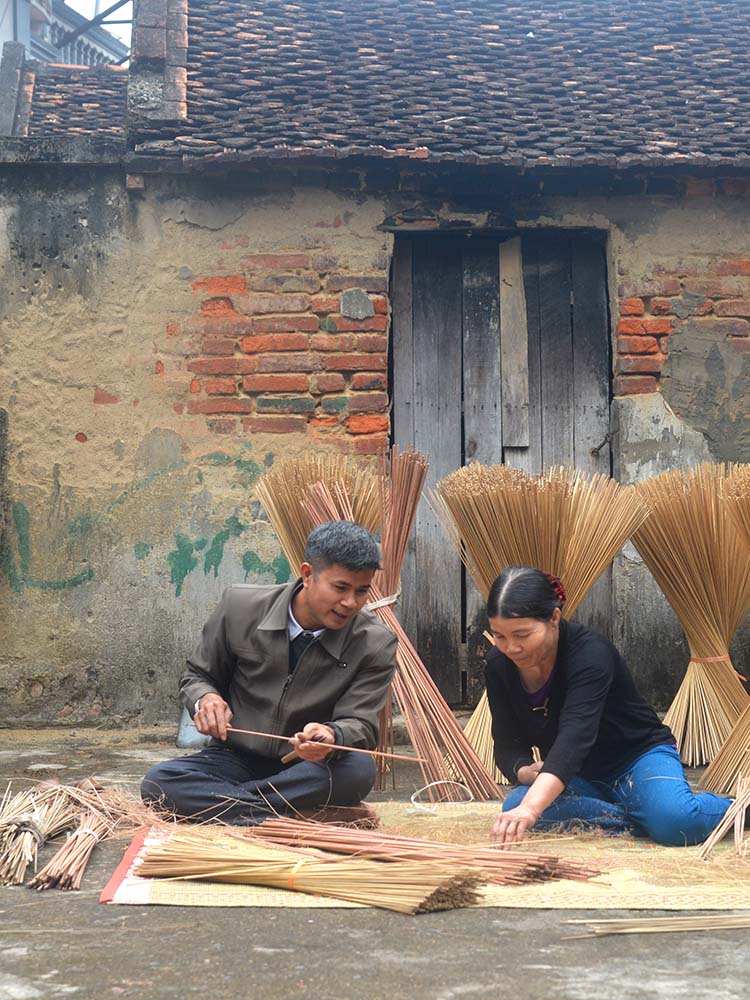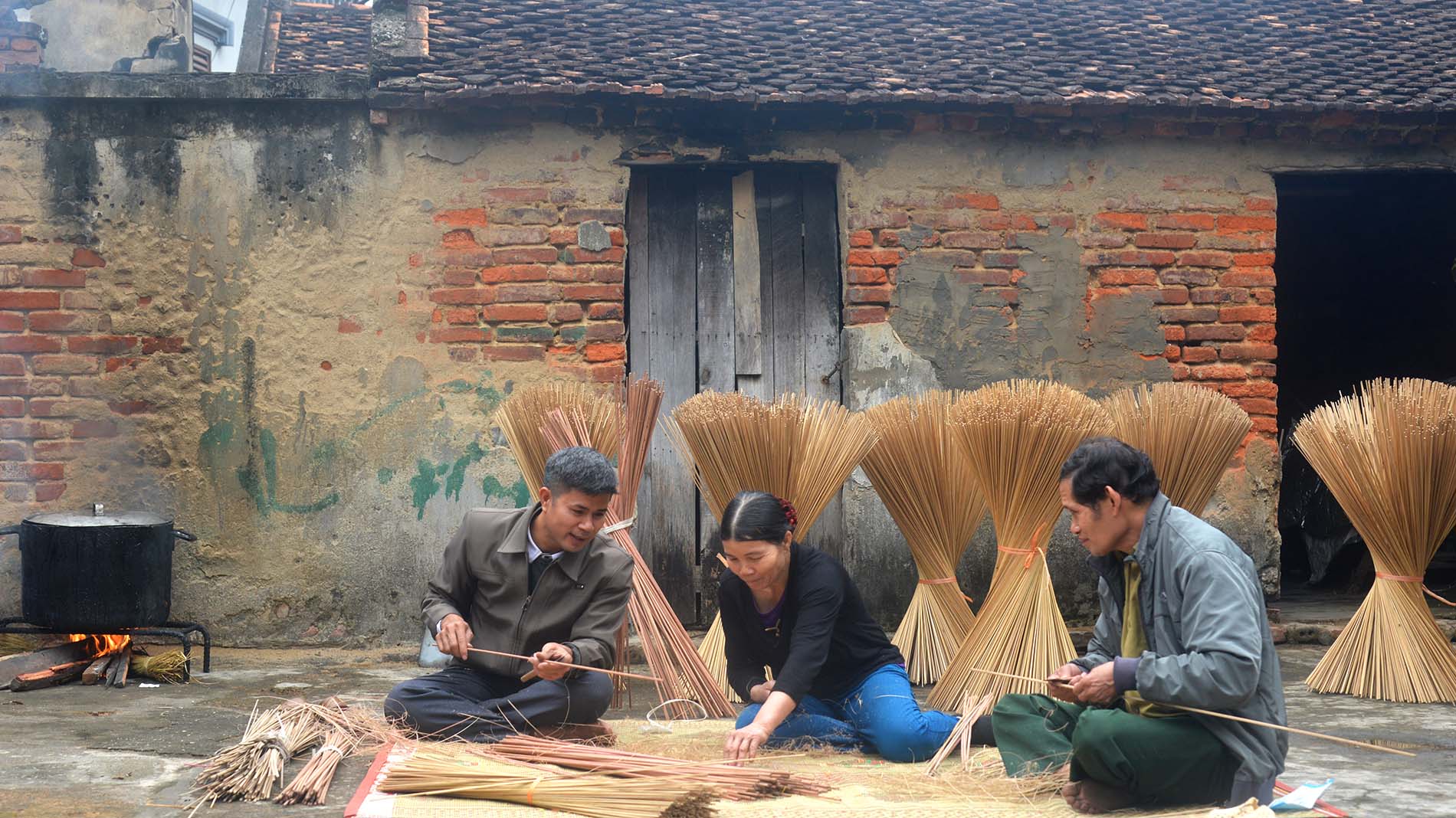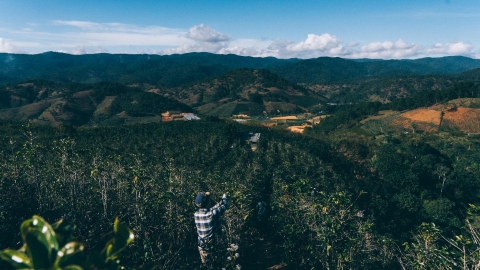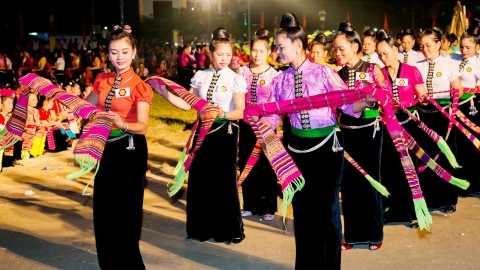THE VILLAGE OF CHÓA AND THE TRADITIONAL INCENSE MAKING
Located about 20 km from the center of Bac Ninh city, Choa village (Dung Liet commune, Yen Phong district, Bac Ninh province) is famous for its black incense making craft. Walking through the village, the scent of melted and processed resin from the incense makers wafts from the houses.
No one knows who the founder of the incense-making craft was, or when the craft originated; all that is known is that it has become a hereditary profession passed down through generations in many families in the village. (In the book)Hebei GazetteerA book published by the Hebei Provincial Library in 1982 mentions the black incense of Choa village. According to the people of Choa, the black incense making craft likely existed before 1694, meaning it has at least 327 years of history. There is also a hypothesis that the black incense making craft appeared when Mr. Nguyen Thanh Can returned from his diplomatic mission to the Ming Dynasty, which is also nearly 500 years ago.
The Kinh Bac region is famous for its ancient temples, shrines, and devout spirituality. Yet, black incense, originally used for worship in these historical sites, is a prime example. The longest black incense sticks can reach 1.1 meters in length and burn for 13 hours. The story of the 13 hours is the result of meticulous calculations by the descendants of Choa village. Approximately every 12 hours, it's time for a "shift change" at the temple, so the 1.1-meter length was carefully calculated to ensure the temple remains filled with incense smoke even when no one is present.
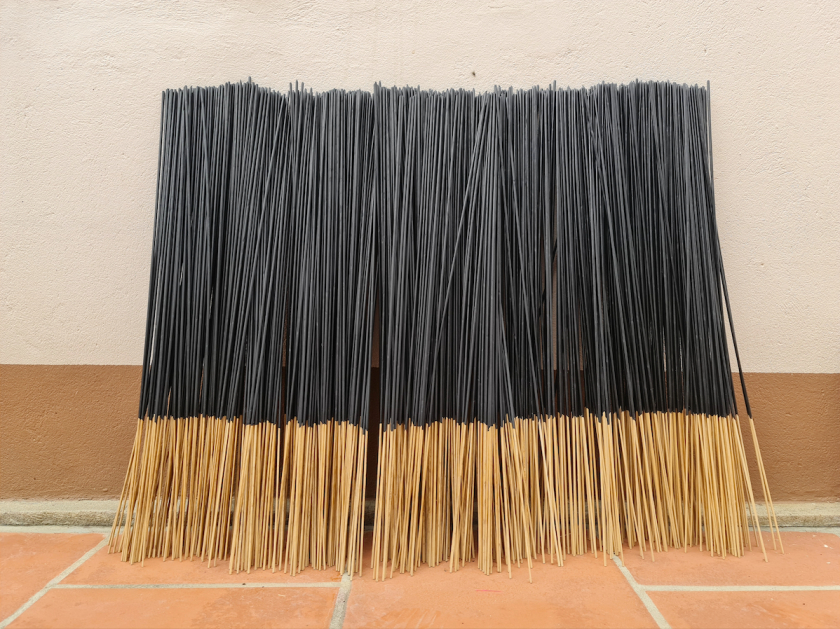
Black incense from Choa village
The incense-making craft is in danger of gradually disappearing as the younger generation in the village is abandoning the trade to seek higher incomes in industrial zones. "Making incense only provides enough to cover the labor costs and make a small profit; we just do it to preserve the craft of our ancestors."
Currently, only about 30 families in the village still practice and preserve the craft.
HANDCRAFTED BLACK INCENSE - NON-TOXIC
Black incense consists of two main parts: the incense stick and the stick itself. Bamboo sticks are soaked for three months to soften and clean them, then whittled into sticks and thoroughly dried to ensure the best quality. Incense sticks typically come in two colors: the natural color of the stick and a pink dye for added variety.
The incense-making process still follows traditional methods from ancient times. Carefully selected resin from the Terminalia catappa tree is cut with a heated knife. The resin is boiled into a liquid, filtered multiple times to remove impurities, then mixed with charcoal powder and ground into a fine paste. This smooth, pliable mixture is rolled into balls, steamed, and kept warm in a rice cooker.
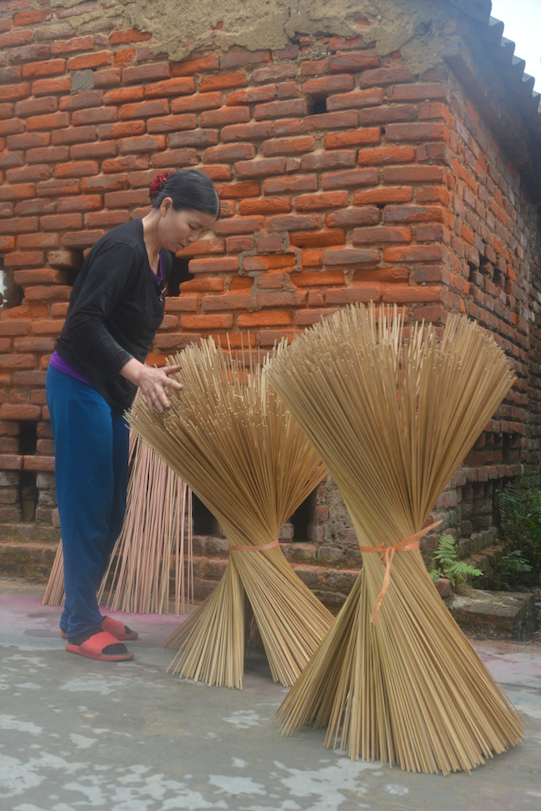
Dry toothpicks
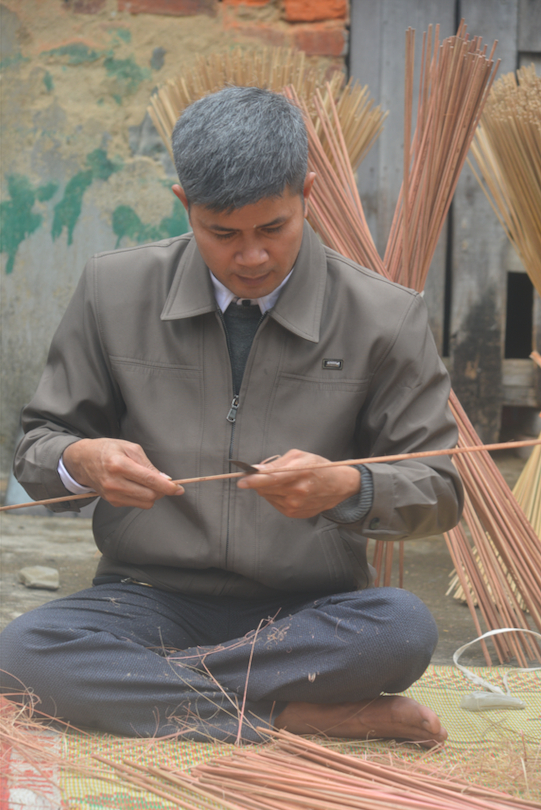
Sharpen toothpicks
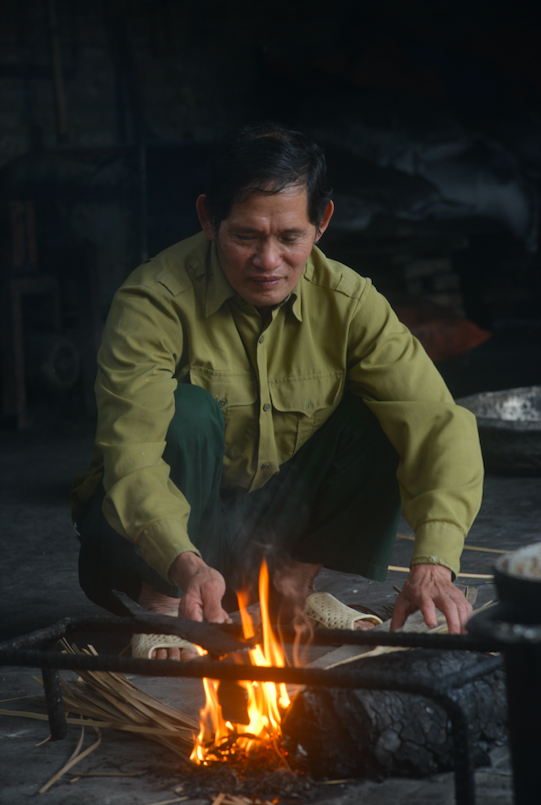
Heat the knife
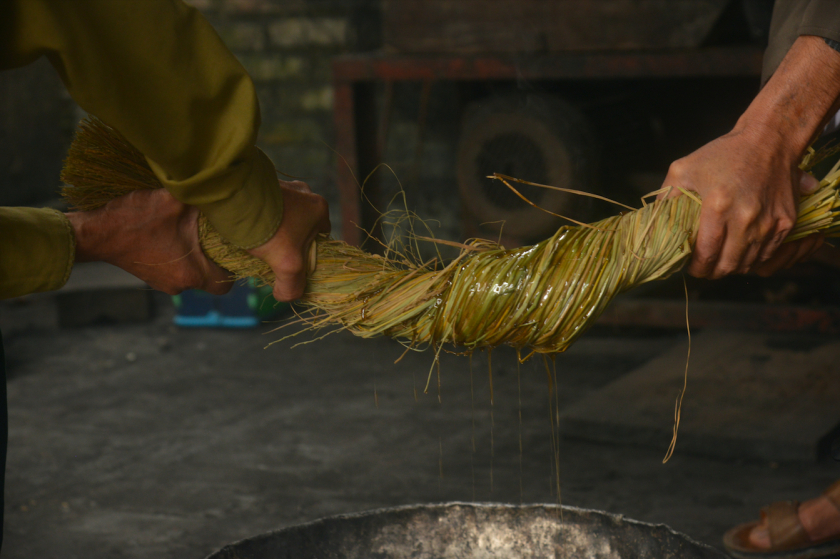
Plastic filter
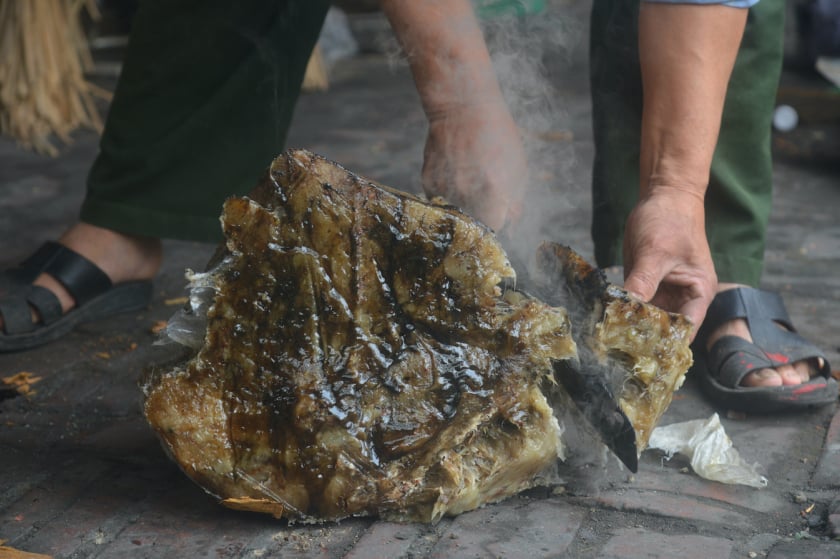
Cutting plastic fillings
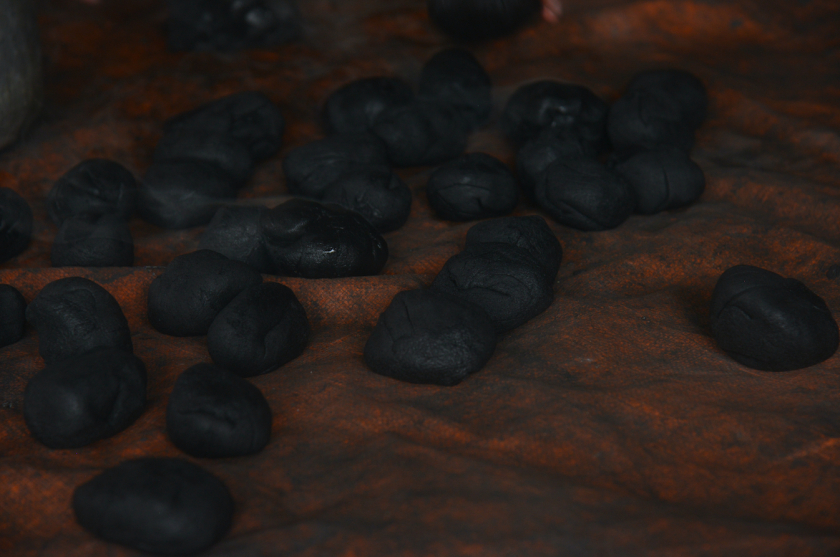
The finished product before incense making
The final step is rolling and drying the incense sticks. The craftsman's hands move swiftly, rolling the incense sticks evenly and smoothly. The scent of the resin during the incense rolling process is both unique, imbued with the fragrance of the forest, and subtly refreshing.
Some families have switched to making incense using industrial machines. Industrially made incense sticks are coated with machine oil, so they can't be as "original" as hand-rolled incense. However, some families still maintain their ancestral craft, hand-rolling each incense stick to achieve the best smoothness, flexibility, elasticity, and quality. After rolling, the incense sticks are dried for several days.
Unlike other chemical-laden industrial incense sticks that are difficult to burn if exposed to moisture, black ebony incense sticks are easy to store once finished; even strong winds and drizzle do not affect their quality.
Black incense sticks from Choa village come in various sizes depending on the user's purpose. There are about 5 or 6 sizes ranging from 25 cm to 110 cm. Each bundle of incense commonly used in households is 25 to 30 cm in size and can burn for 60 to 90 minutes.
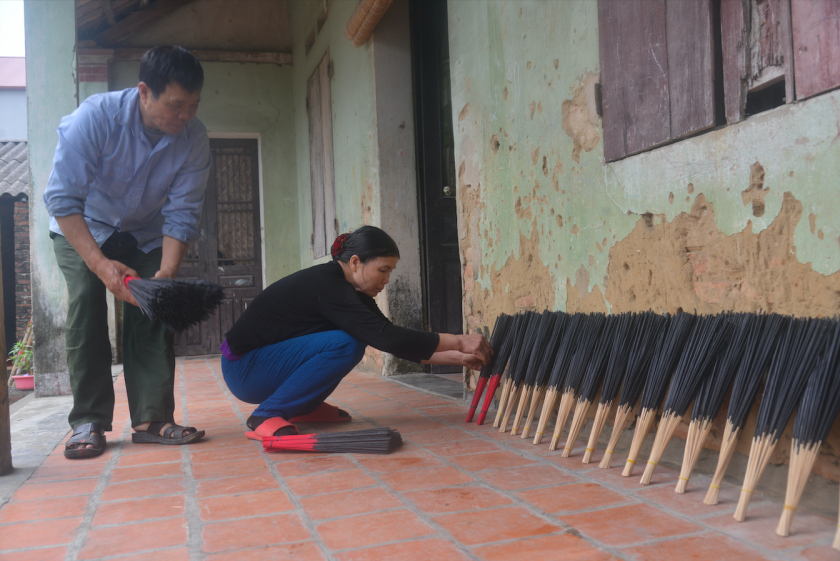
Drying incense
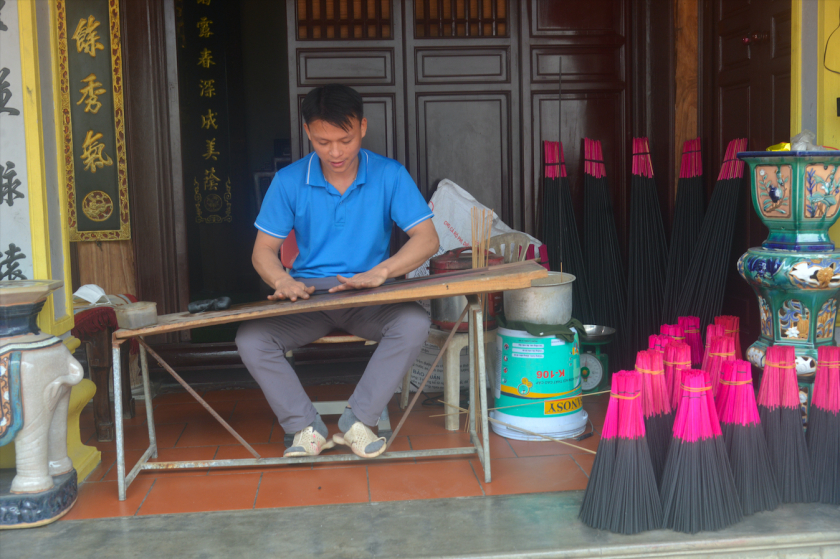
Handmade incense sticks
Black incense made from natural resin, without chemicals, burns without irritating the eyes. The characteristic scent of black incense is that of resin, mildly fragrant and pleasant. "Every day I hand-roll hundreds, even thousands of incense sticks. If there were any harmful substances, we would be the first to suffer," shared an incense maker.
For the people of Chóa village, black incense can be burned at any time to inhale the fragrance, the smoke, the scent of their village, and the scent of their craft. So this Tet holiday, why not try some incense made from black ebony wood from Chóa village to offer to your ancestors?
Additional information
Black incense from Choa village is not yet widely distributed on the market. You can buy it directly from the artisans in Choa village (at the most reasonable price) by contacting Mr. Tien - Phone number: 0368399633.
Alternatively, you can order online through our fanpage.About the Villageor atThis.

 VI
VI EN
EN



